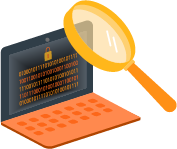Data is the backbone of any business, small-to-medium sized businesses (SMBs) included. Therefore, data protection is crucial to any business operation, which leads to the value of data backup. The need to recover old information may occur at any time, so the ability to access data from the past may be the deciding factor that pushes your business forward.
Note that not all data holds the same importance. Sifting through your data and deciding what should be backed up can be a bit of a process, but it is worth it in the long haul. While doing so, take note of what needs to be filtered out and when in order to create more space for data backups.

What should you back up?
As an SMB, one of the most important practices is continuously backing up your business’ critical information. A quick rule of thumb to follow in order to avoid later issues with accessing your data is to always back up the same version of the software application that is used to open your data. Other than your personal and specific business-related information, there is a general variety of data that every SMB should protect.
- Files
These could be files containing logos, licenses, tax forms, financial records— anything that makes your small business run the way it does! Because your business is creating and adding to files on a day-to-day basis, they are frequently referred to and deserve to be backed up daily. In every case, backups should follow the 3-2-1 rule.
- How Many copies?
You should always follow the 3-2-1 backup strategy. This is a good jumping off point to make sure that you will always have a backup available in case the worst happens.
3 – Have at least three copies of your data.
2 – Store local copies on two different media, such as a backup hard drive or NAS.
1 – Keep one more copy offsite. Cloud services have made this step much more convenient.
- How long?
These types of records are vital to a business. It is helpful to both store these items physically and digitally; however, physical space is more limited than backing up your information with a software. Every six months or so, refer to the data being stored physically and make the determination if it should be stored solely on a hard drive or the cloud for safe keeping.
 Emails
Emails
Keeping record of email conversations with clients, business partners, or within the office is similar to having insurance. You might not need to use it every day, but when you do, you REALLY do! Email backups protect you from many things such as accidental deletion, malicious deletion, hardware failure, and malicious software.
- How long?
Depending on the nature of the email and who it was in exchange with, emails can typically be stored forever. A basic O365 account offers 50GB of storage. This is equivalent to having sent/received over 43,000+ emails.

- Account login information
It is typical for a business to have multiple online accounts between social media platforms to email servers and everything in between. To ensure that your business continues to run smoothly, and in the event that you hire new people to take over these accounts, keep these account logins.
- How long?
This is a no-brainer. Keeping account information saved and locked away is fundamental to the success of your business and ensures (when using protective software) that your information stays out of the hands of hackers and thieves!
 Client-specific information
Client-specific information
This type of data is necessary to keep on hand during a project and after it has been completed. Not only are you able to reference this material in order to complete the project, but you can pull it up when needing inspiration or examples for future projects.
- How long?
Your client and project specific files are essentially what makes up your business’ resume. These records are often needed for website content, portfolios, and as references when wanting to bring in new clients— and they should be made available to you whenever! Because the nature of this information could also include financial records and agreements, there is no doubt that you should hold onto this data indefinitely.
Where?
There are a few ways to store your data. These include the cloud, hard drives, and backup software; however, you should never rely on just one option. Small businesses should invest time into using the cloud, but shouldn’t assume that all of their data is safe and sound in it. The cloud is somewhat susceptible to not only being hacked (even though the chances are slim), but to losing your data. System outages and login failure could cause you to lose and/or not have access to your data for any given period of time.
Due to the vulnerability of only storing your data in one place, consider investing in a hard drive and backup software so that you have three options to refer to when your information needs to be retrieved. Backup softwares typically refresh themselves as your data is modified so that you can increase storage space and stay organized. A few examples of this option include Acronis True Image, EaseUs ToDo Backup, and Paragon Backup— but there are additional, accredited softwares that offer a barrage of pricing and storage options to choose from.
Categories: Data, Backup, Data Backup, IT Security











